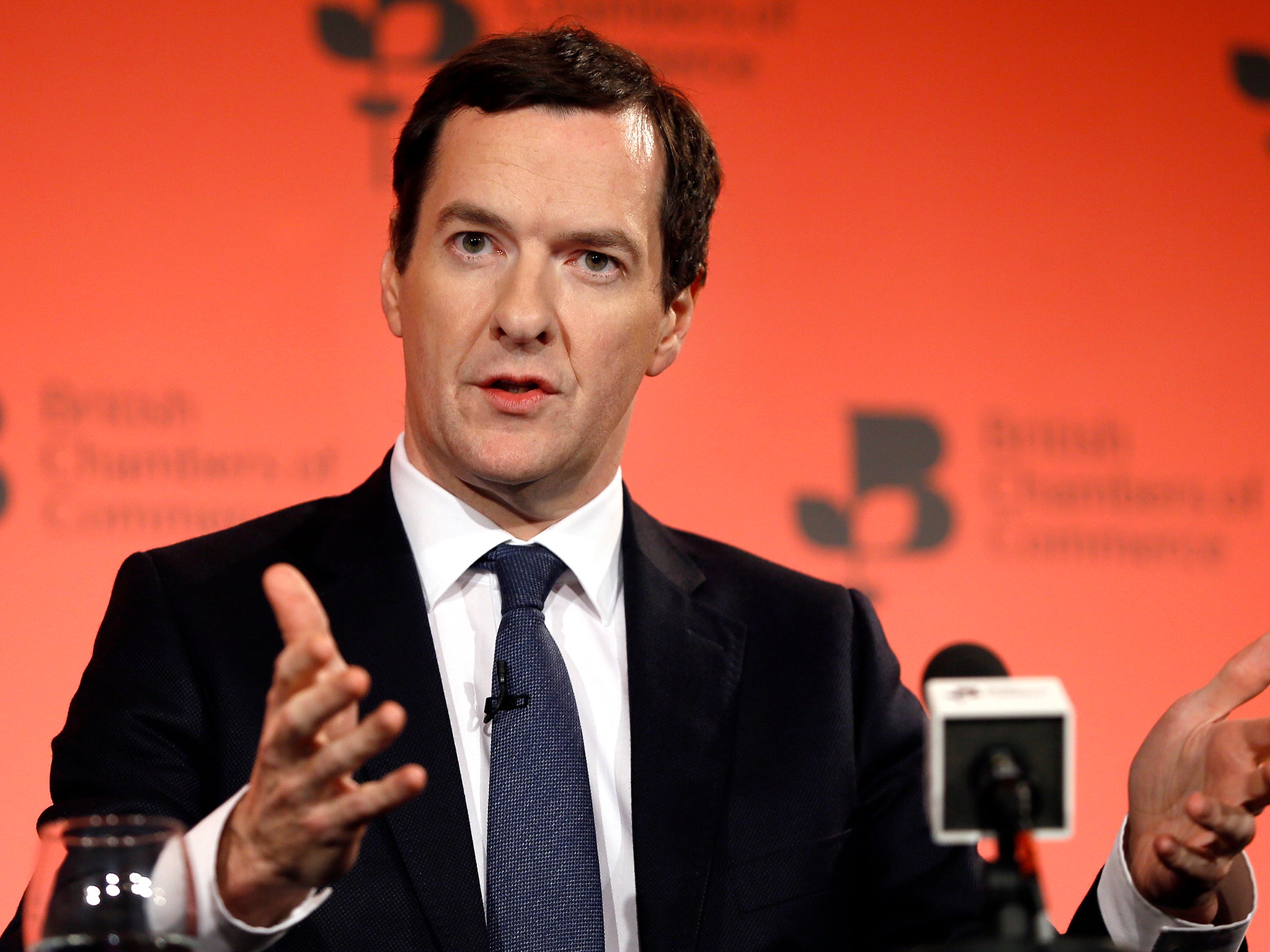Pensions: George Osborne puts brakes on system overhaul – but things could still change after EU referendum
Tory pressure forces Chancellor to abandon idea for flat-rate contribution

Plans by George Osborne to unveil a radical overhaul of Britain’s pension system in this month’s budget have been scrapped after resistance from senior Tories and even the Government’s own Pensions Minister.
Treasury sources on Friday night confirmed Mr Osborne had put on hold plans to introduce a flat rate of pension contributions that could hit high income earners. But they kept open the possibility that the change might happen later in the Parliament – in particular after the European referendum.
An ally of the Chancellor said: “George has always been clear he wouldn’t do anything to damage saving.
“The pensions consultation has been open-ended, to look at how the system is working. He’s listened to what people have said and concluded that now isn’t the right time, with uncertainty in the global economy and reforms such as auto-enrolment still bedding in, to turn things on their head.
“It is also clear that employers wouldn’t welcome a wholesale change in the way they administer schemes. So he is not going to tear up the system of pension tax relief. There won’t be any changes to tax relief at all in the Budget.”
The Chancellor had been examining proposals for a new “Pension Isa”, which would end upfront tax relief on pension contributions, and allow savers to draw their income tax-free in retirement.
Another plan being considered would see the Government introduce a flat rate of tax relief on pension contributions which would result in higher rate earners losing out while those on lower wages would be incentivised to save more.
Both ideas would have provided a windfall to the Treasury and help Mr Osborne achieve his priority of eliminated the structural deficit by 2020.
But senior Tories warned Mr Osborne against any move that would create ‘losers’ under the new system, while the Government’s new Pensions Minister Ros Altmann publically cautioned against a major overhaul of the system.
Baroness Altmann, a former consumer campaigner, has warned both proposals might be a disincentive to saving.
“It’s clear the current system offers very good incentives to higher earners but is also clear that those who are not higher earners may need more incentives,” said Baroness Altmann. “We may decide that the current system is best. It has got some merits.”
In an interview with the Financial Times she added: “The freedom and choice reforms have put us in a place where people’s pensions can work well for them.
“However, tax [applied to pension income under the current system] is a natural brake on them spending their pension fund too soon.”
Senior Tories privately expressed concern that too radical a set of reforms would inevitably result in ‘losers’ – most likely Conservative voters – and could result in a repeat of the tax credits fiasco which had to be embarrassingly reversed.
Two scenarios for reform had been sent to the Office of Budget Responsibility to be costed; the Pension Isa and a flat-rate relief of between 25-35 per cent.
Tom McPhail, head of retirement policy at Hargreaves Lansdown, said: “An Isa-style reform with tax relief being scrapped in favour of tax-free withdrawals would create the risk of a future Northern Rock-style run on the pension system and the UK stock market.”
Pension reform: The Chancellor’s options
Flat rate tax relief on pension contributions
Under the current system, people receive tax relief on their contribution at the same rate they pay tax – 20, 40 or 45 per cent. They then pay tax on their pension income when they draw it down. The Treasury is looking at creating a flat rate on relief on contributions – probably around 30 to 35 per cent. As higher-rate taxpayers save more in pensions this could save the Treasury up £6bn a year depending on the rate set.
Pensions ISA
Under this plan, tax relief would be abolished entirely for contributions – but then retirees would be able to draw down as much they liked from their pension pots without paying tax on it. In order to encourage people to save, the Treasury is examining a plan to give savers a “bonus” worth up to 20 per cent of the money they invest in their pensions. In the short term, this change could save the Government £25bn – but it would lose out in future as retirees stopped paying tax on their pension income.
Doing nothing
This may now be the most likely option as senior Tories warn Mr Osborne not to make radical pension changes that could alienate their core vote – especially with the European referendum only four months away. The Chancellor could even fudge the question – putting off making a decision on reform until next year.
Join our commenting forum
Join thought-provoking conversations, follow other Independent readers and see their replies
Comments